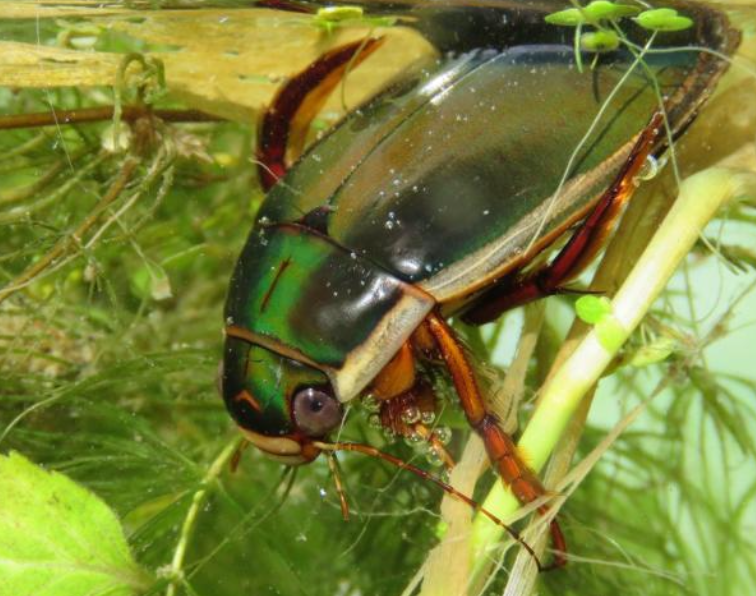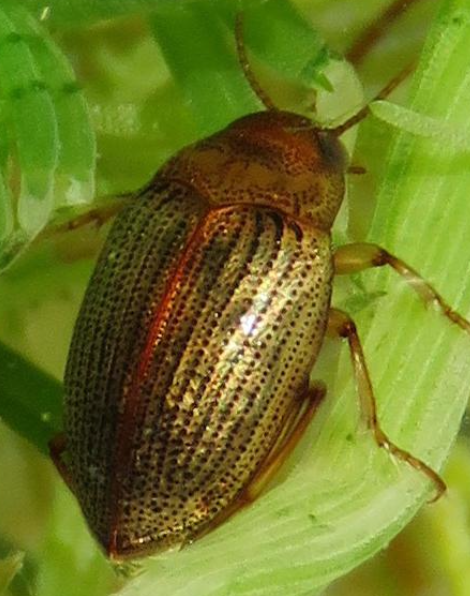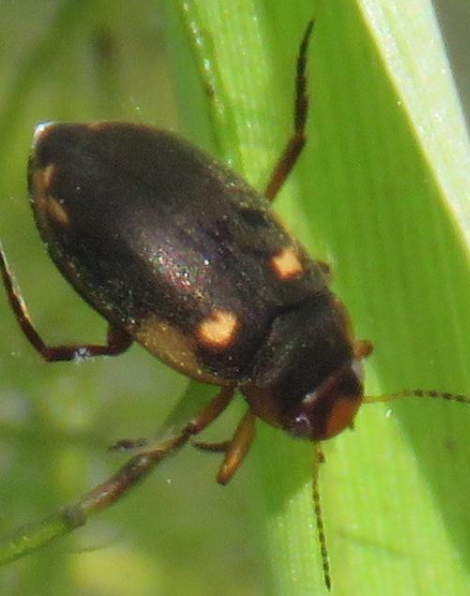What began as a quest to find two elusive water beetle species in England's fenlands turned into a journey of unexpected discoveries, featuring new records, nationally scarce species, and a reminder of both the treasures and challenges facing modern naturalists.
The summer expedition through Cambridgeshire and Lincolnshire may not have uncovered the target species Agabus undulatus and Berosus luridus, but it revealed the remarkable diversity that still exists in England's remaining fenland habitats.
The Perennial Challenge
The journey immediately highlighted a familiar frustration for field researchers: the remarkable inaccessibility of the English countryside. While nature observation is encouraged at designated sites and observation huts, gaining permission to sample the remaining high-quality aquatic environments requires persistence and patience.
As the author notes, "politely requesting permission to dip a biosecure net by turning up unannounced invariably meets with a brick wall response." This often leads to investigating less satisfactory sites, though even these can yield surprises.
River Cam Success
The expedition began on July 31st at the River Cam (TL53717228), where the submerged grassy margins produced numerous Noterus clavicornis (De Geer) alongside a specimen of Rhantus suturalis (MacLeay). The river's abundant fish fauna, including Ruffe and Spined Loach, provided additional ecological context.
Fulbourn Fen Discoveries
At Fulbourn Fen, despite many waterways being dry, the remaining aquatic habitats proved productive. A small stream yielded several Black Belly Diving Beetles (Dytiscus semisulcatus), while another remnant pool produced an impressive assemblage:
- Colymbetes fuscus
- Over 30 specimens of Agabus bipustulatus (also found in a cattle trough)
- Great Diving Beetle Dytiscus marginalis
- The day's highlight: a large adult male King Diving Beetle Dytiscus dimidiatus
The Dytiscus dimidiatus discovery was particularly significant, representing a new 10km square record for this impressive species.
Species Spotlight: King Diving Beetle (Dytiscus dimidiatus)

This magnificent beetle represents one of Britain's largest aquatic insects, and its discovery at Fulbourn Fen added a new 10km square to its known distribution.
Lincolnshire Fenland Exploration
The search continued on August 2nd in the Lincolnshire Fens near Peterborough. Despite facing familiar access challenges at nature reserves requiring permits, productive sites were found along the Maxey Cut. The river's stony substrate quickly yielded two characteristic species:
- Nebrioporus elegans (Panzer)
- Platambus maculatus
The New Cut (TL54207291) proved equally productive, producing two species of particular interest:

Haliplus mucronatus
This unmistakably large and nationally scarce species was a significant find in the fenland waterways.

Hydroporus figuratus
The commoner of the two species in England's Hydroporus dorsalis complex, representing important fenland diversity.
Wicken Fen: A Beetle Paradise
The expedition's crown jewel came on August 8th with a visit to Wicken Fen, made possible by a processed permit to study the aquatic fauna. The ditch near the visitor centre (TL56237055) proved to be "teeming with life and some very special species."
In just a couple of square yards of ditch—where else in Britain could this happen?—four of the six great diving beetle species were discovered:
- Dytiscus marginalis
- Dytiscus semisulcatus
- Dytiscus dimidiatus
- Dytiscus circumflexus
Additional highlights included Hydaticus transversalis (Pontoppidan) in good numbers and Hydaticus seminiger (De Geer) in a small pond at the boardwalk's end.
Final River Discovery
An impromptu visit to the River Great Ouse (TL52047357) concluded the journey with two remarkable finds in the river's grassy margins:
- The beautifully marked Hygrotus versicolor (Schaller)
- Noterus crassicornis (O.F. Müller) - a species that had long eluded the researcher
Conservation Implications
This expedition showcases both the remarkable biodiversity that persists in England's remaining fenland habitats and the challenges facing those who wish to study and monitor these precious ecosystems. The diversity discovered at sites like Wicken Fen demonstrates the critical importance of preserving these unique habitats.
The difficulty in accessing study sites highlights the need for better coordination between researchers and landowners, ensuring that biosecure scientific sampling can continue to contribute to our understanding of aquatic biodiversity.
While the original target species remained elusive, the journey revealed the fenlands' continued capacity to surprise and delight, supporting nationally scarce species and maintaining the aquatic beetle communities that make these landscapes so special.
Acknowledgements: Sincere thanks to the National Trust and staff at Wicken Fen for the provision of a licence, and Garth Foster and Clive Turner for kindly confirming the identification of species.